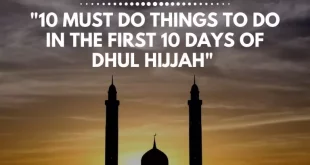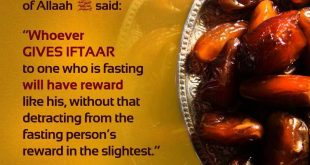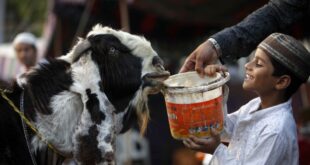Millions of pilgrims from the world over are presently assembled in Makkah to perform the annual Hajj pilgrimage as commanded by Almighty Allah in the Holy Quran.
The Hajj has been the theme of many Islamic writers across the globe in the past and the present, but almost all in unison agree that the Hajj is a command by Allah our Creator and Muslims are duty bound to obey, subject to its stipulated conditions.
The fallout from Hajj has come under different scrutiny from different religious scholars, philosophers and thinkers because the Holy Quran clearly calls on Muslims to reflect, ponder, think, observe in many aspects of its beliefs.
Servitude
Hajj is servitude to Allah. It is submission, sacrifice, satisfaction, love, philosophy, logic, politics, migration, monotheism and unity resurrection all rolled up into one. If looked upon in this light it is an eternal treasure that holds the key to all moral, spiritual, economic, and political problems that confront the 1.5 billion Muslims worldwide or quarter of all mankind.
 Hajj crushes the monster of 'individualism' the selfish serpent, and raises the flag of 'internationalism' – the ensign that should flutter in all corners of the world we live in. The various rites performed during the rituals of the Hajj are aimed amongst others to ensure a United Assembly of Muslims throughout our globe. The largest gathering and the greatest one in the valley of Arafah a pre-requisite for acceptance of Hajj by Allah Almighty, presents a unique and wonderful spectacle of leveling of all distinctions of race, colour and rank among human kind. Clothing distinguished by its colour, texture, material sometimes cause for self pride has to be taken off, and substituted with two pieces of unsewn white dress known as the Ihram whether he be a monarch or a beggar.
Hajj crushes the monster of 'individualism' the selfish serpent, and raises the flag of 'internationalism' – the ensign that should flutter in all corners of the world we live in. The various rites performed during the rituals of the Hajj are aimed amongst others to ensure a United Assembly of Muslims throughout our globe. The largest gathering and the greatest one in the valley of Arafah a pre-requisite for acceptance of Hajj by Allah Almighty, presents a unique and wonderful spectacle of leveling of all distinctions of race, colour and rank among human kind. Clothing distinguished by its colour, texture, material sometimes cause for self pride has to be taken off, and substituted with two pieces of unsewn white dress known as the Ihram whether he be a monarch or a beggar.
The ruler and the subjects share common ground at the pilgrimage, making the ruler conscious that he too is a subject of Allah and Allah rules over him, and the subjects enlightened that Allah is the real King while the rest of all humanity are all His servants. The head of state however much maybe powerful is unable to assert his authority in the House of Allah, the Ka'bah.
The Ihram also reminds and makes realization to man of the day he was born, naked and helpless only to be wrapped around by those around to cover his nudity. The Ihram also impacts us of the day of our exit from this temporary stay in the material world, wrapped once again by a cloth to cover our nakedness and once again powerless and helpless, leaving those around to perform the rites and dispose us for burial.
Viewing
The Ka'bah is the cubicle building in centre of the Great Mosque in Makkah holding the Hajar al Aswad. The first look of the Ka'bah makes a pilgrim dumb struck with awe and inspiration. Beads of perspiration tend to flow down his or her forehead while tears stream down the eye. From that first look the pilgrim is drawn towards it like thirsty birds rushing for water.
 The Ka'bah is an empty building but people are drawn to it like bees to nectar. Why…how…and many other thoughts fill the mind of the pilgrim on his initial visit. Is it me or a dream? Am I standing on the holiest spot on earth for mankind as proclaimed by Allah in the Quran, are my feet on the soil where the Greatest of Allah's creation the Holy Prophet Muhammed (PBUH) walked and also Prophets like Adam, Ibrahim (Abraham) Ishmael (peace be upon all of them) trod.
The Ka'bah is an empty building but people are drawn to it like bees to nectar. Why…how…and many other thoughts fill the mind of the pilgrim on his initial visit. Is it me or a dream? Am I standing on the holiest spot on earth for mankind as proclaimed by Allah in the Quran, are my feet on the soil where the Greatest of Allah's creation the Holy Prophet Muhammed (PBUH) walked and also Prophets like Adam, Ibrahim (Abraham) Ishmael (peace be upon all of them) trod.
The Mighty Caliphs of Islam Hazrats Abu Bakr, Omar, Usman and Ali would have frequented this area and also the beloved Companions of the Prophet and so would the revered friends of Allah, Hazrat Abdul Qadir Jilani, Hasan al Basri, Imam Ghazali and Islam's might defender against the Crusaders Salahuddin Ayyubi (Saladin). Thoughts run on the pilgrims mind 'what noble act which I have performed makes me an invitee by Allah amongst the millions left back on earth from this privileged list of invitees'. No words can capture the majesty of the Ka'bah, that its power beyond the power of human beings to describe, to know this place is to understand Islam.
Tawaf
The Tawaf is the circumbulation that the pilgrim performs rounds the Ka'bah.
The Islamic prayer combines spiritual concentration and certain bodily movements which are co-ordinated with each other. The ceremony of walking around the Ka'bah is one of these actions. It is an indispensable obligation for everyone who enters the holy city of Makkah and the observance of this injunction is one of the three most essential points of the pilgrimage.
We can question ourselves what is the meaning of this? Is it necessary to express devotion in such a formal way? Yes, firstly because Allah has ordained it to be done in this manner. A philosophical answer is if we move in a circle around an object we therefore establish that object as the central point of our action. The bees go round and round the flower, focusing on the honey in the flower as its centre of attraction. The Ka'bah towards which every Muslim directs himself in prayer symbolizes the oneness of God.
The Tawaf symbolizes activity of human life. Consequently, the Tawaf implies that not only our devotional thoughts but also our practical life, our actions and efforts, must be centered around the One and True God Allah Almighty in keeping with the Quranic command. I have not created Jinn and Men but that they should worship me (Quran Sura 51:56).
As we walk and run between the two cliffs of Safa and Marwa at the pilgrimage we know that they are the same hills where Abraham's wife Hajara ran to look for water for their baby Ismail. As we drink from the well of Zam Zam in Makkah we are conscious that it is the same well that sprang up for Hajara and Ismail. At this place we are in the grip of history which is being re-enacted and has been done so for hundreds of years. It is also real and tangible, this land of historical association which has become part of our very lives, that the moment you go into these places history lives again.
Concepts of worship
The concept of worship in Islam differs from other religions. It is not restricted to ritual prayers, but worship extends to man's practical life as well. The position of Islam is that it teaches us firstly the permanent worship of one God in all actions is the very meaning of this life and secondly that the achievement of this purpose remains an impossible task so long as we divide our life into two parts – spiritual and material – they must be bound together in our consciousness and our action into one harmonious entity.
So using the Hajj not only for spiritual benefit but to also for using the opportunity for the Muslims to discuss the various problems that confront the Muslim world today will not be out of place. If the Holy Prophet (PBUH) could discuss matters concerning the Muslins whether it be economics, military, politics and administration in the Holy city precincts of Makkah so why not in the present world as followers of our Beloved Prophet.
Hajj is centred around sacrifice. Sacrifice not only of sheep and cattle as required by the rituals of Hajj but sacrifice of our inner self as well for the welfare of others.
The prompting satanic self in us whispers us to commit evil and sin and to defy Allah and we are duty bound to fight the vile of Satan by the virtue of doing good.
The Holy Quran tells us that the flesh and blood of the animal sacrificed at Hajj does not reach Allah, but what reaches Allah is the piety and righteousness and becoming God-consciousness and God-fearing. Sacrifice means giving up a thing for the sake of another, it is a higher and noble quality indispensable for the progress and prosperity of an individual leading to the entire community. Thus with God words or claim have no weight, it is action and deeds that count and that too based on pure motives and intentions.
While sacrificing an animal according to the tenets of Islam during Hajj is obeying God's command the benefits of the sacrifice is distributed amongst the poor and needy and thereby benefiting His creation mankind. We should when making this sacrifice also kill the animalism in ourselves.
The saddest hour of the pilgrim is when one has to leave Makkah and the Ka'bah. One wants to be there longer and longer. The magnetism is unexplainable and can only be experienced.
 Sri lanka Muslims Web Portal Diversity and Inclusiveness
Sri lanka Muslims Web Portal Diversity and Inclusiveness



